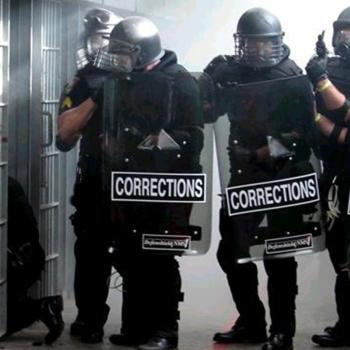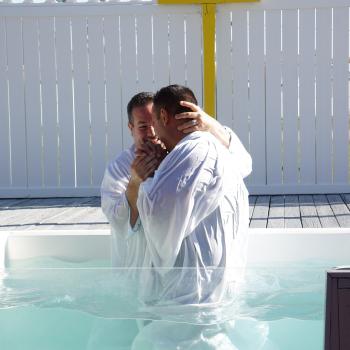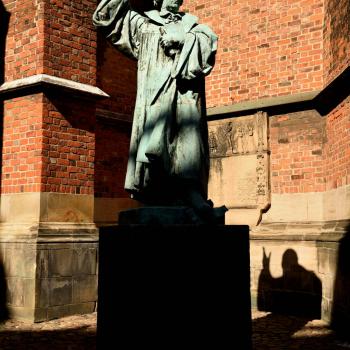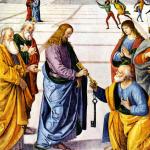Washington D.C., Jan 7, 2016 / 03:06 pm (CNA).- As United States president Barack Obama on Tuesday announced executive action to curb gun violence, the nation's bishops welcomed “reasonable efforts” at the regulation of guns and encouraged congressional action on the issue. “For a long time now, the bishops of the United States have called for reasonable policies to help reduce gun violence,” Archbishop Thomas Wenski of Miami said shortly after Obama's address. The archbishop is chair of the U.S. bishops' domestic justice and human development committee. “While no measure can eliminate all acts of violence which involve firearms, we welcome reasonable efforts aimed at saving lives and making communities safer. We hope Congress will take up this issue in a more robust way, considering all of the varied aspects involved,” he continued in his Jan. 6 statement. Archbishop Wenski added that aside from “reasonable regulation, conversations must include strengthening social services for persons with mental illness, while being mindful that the vast majority of those suffering with mental illness are not likely to commit violent criminal acts.” The United States president had on Jan. 5 announced that gun sellers, including currently exempt sellers at gun shows and online, must perform background checks on potential buyers; states are to provide information about those disqualified from buying guns due to certain restrictions involving mental illness or domestic violence; and some 230 new examiners to conduct background checks will be hired at the FBI. Obama had attempted to push expanded background check legislation through Congress in 2012 after a shooting at a Connecticut school killed 26, but it had failed. The president also asked that Congress approve $500 million to improve access to mental healthcare. He cited the need to respond to 30,000 gun deaths each year and to several major shooting incidents, saying, “we can find ways to reduce gun violence consistent with the Second Amendment.” Numerous Republican legislators and presidential candidates were quick to challenge the executive action. Bishop Kevin Farrell of Dallas on Jan. 5 called the executive actions “first steps in correcting gun laws so weak that they are ludicrous.” He added, “Thank God that someone finally has the courage to close the loopholes in our pitiful gun control laws to reduce the number of mass shootings, suicides and killings that have become a plague in our country.” “The president’s action is a small but important step to control sales of weapons at gun shows and over the internet that sidestep background checks. These 'back door' gun dealers have effectively nullified the law requiring background checks by legitimate gun dealers by creating a black-market in firearms for those seeking to avoid background checks for whatever reason. The proliferation of weapons must be controlled.” The bishop also charged that “Congress has unabashedly sold itself to the gun lobby. If there was ever any doubt, its recent action to kill legislation to ban people on the terrorist no-fly list made it obvious.” Bishop Farrell also used his post to address Texas' new law, which was effective Jan. 1, allowing holders of concealed firearms licenses to carry firearms openly in places not prohibited by law. The Dallas bishop lamented the legislation, saying, “it is difficult to see how this … can accomplish anything other than cause people to feel threatened and intimidated.” Noting that the law allows churches to prohibit the carrying of open or concealed weapons on their premises, he announced that “the Diocese of Dallas will prohibit the possession of any weapon in any facility owned, leased and operated by the diocese or a diocesan entity, except as specifically permitted by diocesan policy.” This policy, he said, “is rooted in the belief that our churches, schools and other places of worship are intended to be sanctuaries – holy sites where people come to pray and participate in the ministry of the Church.” Bishop Joseph Strickland of Tyler had also responded to the Texas law the preceding week. In a Dec. 31, 2015 statement, he said that “I respect and support the right that we have as Texans to defend ourselves and our families. As Catholics, we believe the legitimate defense of persons can be not only a right, but also a grave duty.” “In the Diocese of Tyler, I strongly encourage those who choose to exercise this right to continue to do so in a prudent and responsible manner. With respect to our communal worship, I believe that openly carrying a weapon is not appropriate during the Sacred Liturgy and may understandably cause great discomfort to some gathered to worship alongside us.” In his capacity as Bishop of Tyler, he asked the faithful of his diocese “and guests of our churches to observe my instruction that weapons are not to be openly carried during Holy Mass or other times of public worship.” He added that peace officers of local, state, or federal agencies are exempt from the instruction. “As Texans adjust to this new law, I would also encourage the clergy and faithful of the Diocese to address any questions that may arise with calmness, kindness and respect, taking into consideration both the legitimate feelings and the rights of all involved,” Bishop Strickland wrote. The bishop also directed that a statement conveying his instruction be inserted into parish bulletins and/or read during the announcement at Mass. Bishop Farrell's blogpost concluded by exhorting: “Let us pray that our legislators will see this as a human and not a political concern so that gun violence can be mitigated through appropriate legislation that allows us to live in a safe environment while respecting our Second Amendment rights.”Photo credit: Kirill Demchenko via www.shutterstock.com. Read more


















